Toshir? Mifune is one of the greatest actors to ever grace the silver screen. I don’t say that with any doubt in my mind and will stick by it. He died 13 years ago (this past Christmas Eve) from what many say was an over-worked life, which isn’t hard to disagree with. Not many gave as much passion and dedication to his art as he did, and I’m not just speaking about his 16 films with Akira Kurosawa (a few of which are appearing on this list alone).
When thinking of a list, a top 10 seemed the most accessible. It’s my opinion, so it’s not a definitive list. I love mostly anything with him in it, but I value our reader’s suggestions as well, so please comment below with your picks.
10. Hell In The Pacific
I remember the first time I saw a film with Toshir? Mifune. I was around 7 years old, watching television with my grandfather and he changed the channel to watch this film starring Lee Marvin. My grandfather, being in World War II, never liked watching war films based in Europe, which is where he was stationed and a prisoner of war, but he could freely watch the Pacific side of things because he was legitimately interested in this completely different side of the war.
While watching, I saw this man, Toshir? Mifune, who amazed me just with his facial expressions alone. A great film that is very minimalist (only Marvin and Mifune act alongside one another), it gives a different take than most were used to when it came to the war. Also, it was remade as a fun sci-fi film many years later, Enemy Mine, based on a novella of the same name.
9. Drunken Angel
Mifune plays a small time hood in the first of many collaborations with Akira Kurosawa. It had to start somewhere, and this film was a great introduction to the both of them. He’s fantastic here, just a few years from World War II, where he served in the Japanese military, so his body was very frail and he wasn’t the towering and immense presence we were to see for years to come.
Takashi Shimura is also fantastic in the film, who actually appeared in more Kurosawa movies than Mifune. A wonderful release from The Criterion Collection makes this film a worthy piece of any collection.
8. The Life of Oharu
Another wonderful Japanese director, Kenji Mizoguchi, directed this film, which tells the story of a woman who was sold into prostitution by her father and her trying to break free of that stigma. It stars the radiant Kinuyo Tanaka as Oharu, and really is a way for Mizoguchi to tell the story of class struggle, gender issues and the corrupt hierarchy during the Edo period in Japan.
A wonderful film that is not available on DVD here, which is one I wish Criterion would take a look at and give us a beautiful print of. Mizoguchi is one of the greats of Japan’s Golden Age of Film and already has a presence in the collection, so why not add one more classic. Mifune is Katsunosuke, a page who has courted Oharu and has a forbidden affair with.
7. Throne of Blood
One of the greatest adaptations of Macbeth ever to come to screen, Kurosawa takes Shakespeare’s play of corruption and brings it to feudal Japan. Mifune plays Washizu (Macbeth), who is a well respected general in his lord’s army and he is told by a spirit that he will become master of the North Castle and later will become Lord of the Forest Castle. Of course, if you know Macbeth at all, his wife Asaji (Lady Macbeth), convinces him to jump ahead with the prophecy and kill the lord.
It all spirals out of control and we have one of the greatest end battles captured on film. We can see where some of the tension between Kurosawa and Mifune started from, which was here, due to use of real arrows and not very much protection. A stellar cast and great ambiance makes for a great Shakespearean tale.
6. The Quiet Duel
Another Kurosawa/ Mifune collaboration, this is more of a reserved tale, a sad story of a doctor who contracts syphilis from a patient when he cuts himself during an operation. We see his conscience eating away at him while he treats himself in secret, and his shame ruins his life.
What’s saddest of all is that he is a bright and idealistic man, who works for his father (again starring alongside Takashi Shimura) and his slow demise in his career and personal life. A wonderful performance by Mifune, which sadly is not in the collection. Another film that would fit perfectly within Criterion’s halls, so here’s to hoping for the future.
5. Rashomon
Kurosawa melded two stories by Ry?nosuke Akutagawa together to make this film, which is a great melding of Japanese sensibility and a detective procedural, a serious hard boiled film noir if you will. It tells the story of a woman being raped and her samurai husband being killed and the four witnesses to the crime, all differing and contradicting one another and it’s up to us, the audience, to try to come to grips with the truth.
It’s heavily influenced by silent film, with Kurosawa using minimal sets. A great piece of cinema, and considered one of Kurosawa’s masterpieces. The truth is sometimes worse than admitting to the killing, which is a grand statement in film, especially back in 1950.
4. Samurai Trilogy
The sweeping epic saga of legendary samurai Musashi Miyamoto (portrayed by Mifune), it has been called Japan’s Gone With the Wind. Set across a civil war, we see Musashi grow up from troubled youth to an enlightened warrior in Hiroshi Inagaki’s brilliant trilogy. And what’s best is that we get to see Mifune in full color in samurai action.
Mifune is the essential samurai warrior in film, be it in Kurosawa’s epic black and white fare and then made it more quintessential with these films as well. Definitely check out all three in one night to get the full effect of this sprawling tale of self discovery, combat and valor.
3. Seven Samurai
Set during the Warring States Period Japan (which is roughly 1557/1558), it tells the story of a village who fear for their lives and crops from a group of bandits and their hiring of seven masterless samurai (ronin) who will attempt to stop these despicable men. We get seven samurai from different areas of life and their banding together is the heart of this movie.
Not to ruin it for the few who might not have seen it, it’s 207 minutes of honor, battles, violence and class struggle. And again has such a poignant ending that makes you sit there for 10 minutes after, jaw on the ground, wondering how someone can be so brilliant. Mifune plays the seventh samurai, Kikuchiyo, who is most like the villagers and understand their plight and is trying to prove his worth throughout the film.
A classic in all aspects of film, this was one of the first films to deal with a group of people banding together to fight almost unspeakable odds.
2. Yojimbo / Sanjuro
I cheated by putting the one-two punch of the flea infested ronin Kuwabatake Sanjuro (which translates to “Mulberry Field thirty-year-old”), which already tells you what kind of man this is: a man with no name. He comes to a town which is in turmoil due to a pair of warring gangs who want full control of the town.
The ronin decides to play both sides against one another and uses his skills to show that he is interested in helping the group who is willing to pay him more. He is actually doing it to rid the town of both groups, but is a wonderful display of patience by the ronin.
One of my favorite films ever, it is followed by an almost equal sequel, Sanjuro, which came out only a year later in 1962. This one is lighter in tone and more humorous, it tells the story of 9 young samurai who know of corruption in their clan and wish they could be rid of it. The ronin, sitting in the other room, tells them they are naive and stupid and decides to help them with their plight. Sadly it doesn’t get as much credit as Yojimbo, but has a brilliant ending that still sticks with me today.
Two amazing films that are both fun and exciting, with Mifune just commanding every scene that he is in, showing why he was one of the best in the business.
1. The Bad Sleep Well
I’m thinking this is a surprising pick to some out there, which surprises me as well if I hadn’t seen this film 3 years ago randomly on TV. When I still had cable television, this was on one night at 2 a.m. on IFC and when I finished the film, I decided to rent it via Netflix so I could watch it again. And again. And a few more times. It’s loosely an adaptation of Hamlet and also is this amazing depiction of corruption of corporate Japan, where Mifune’s character, Kôichi Nishi, who gets a prominent position in a corrupt Japanese company in order to expose the people within that deserve to be put away for his father’s death. It’s a heartbreaking story, with such a way of storytelling that it makes me yearn for more films like this.
It’s a film that doesn’t end the way you think it should, and I almost felt like Fred Savage’s character in The Princess Bride while watching the film. Especially with today’s corporations, such as Enron, getting in trouble for skimming off the top and other despicable means to gain a buck, it’s as relevant in 1960 as it is today. A film that I thank the Criterion Collection for showcasing and one that I hope to spread the good word about for years to come.


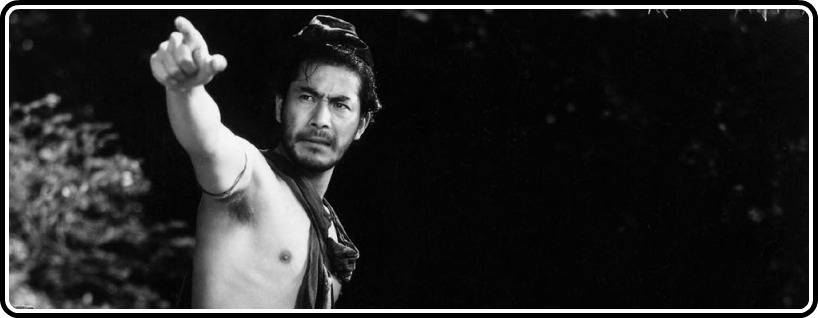
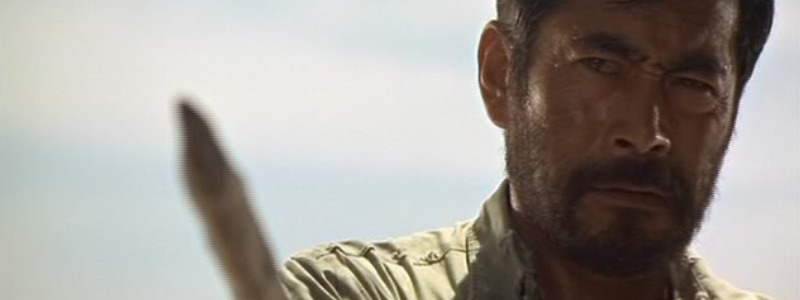
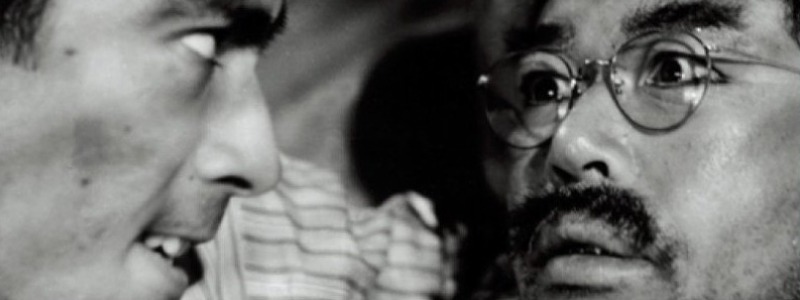
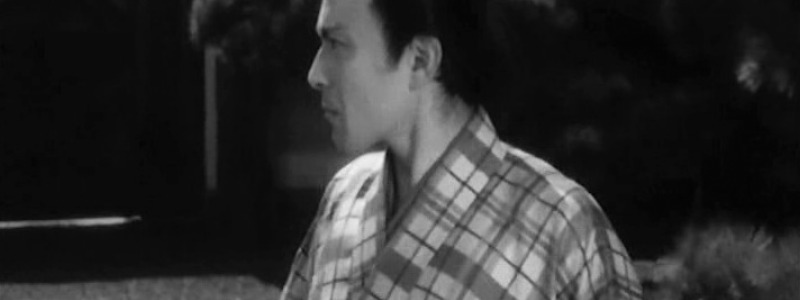
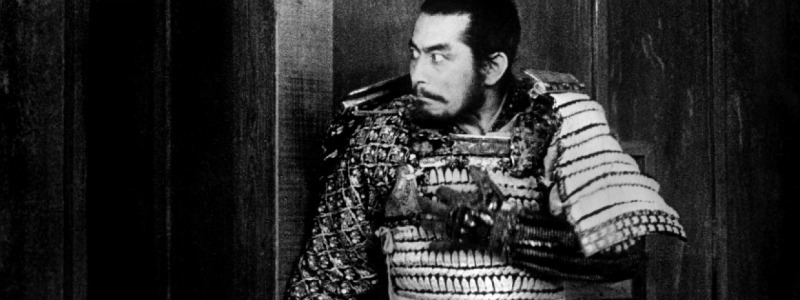
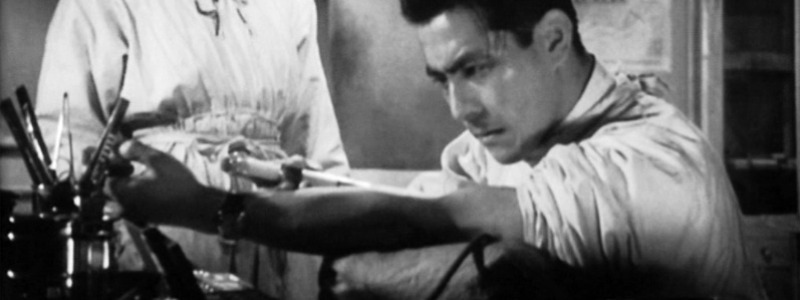
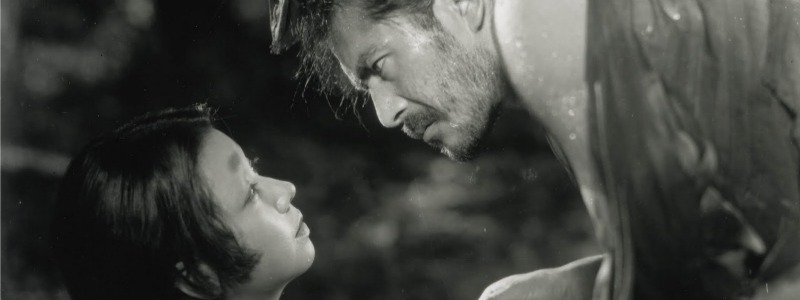

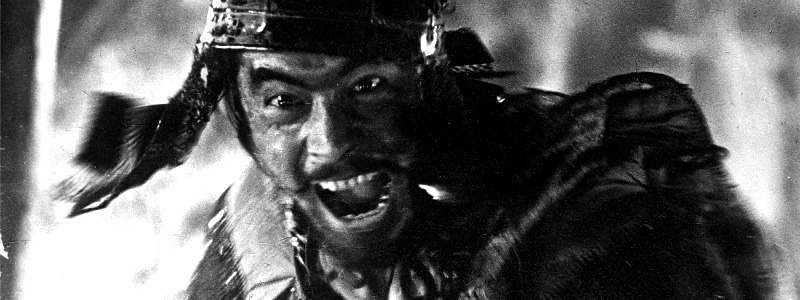
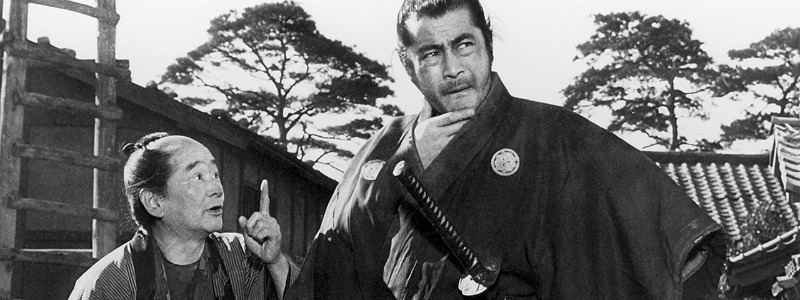
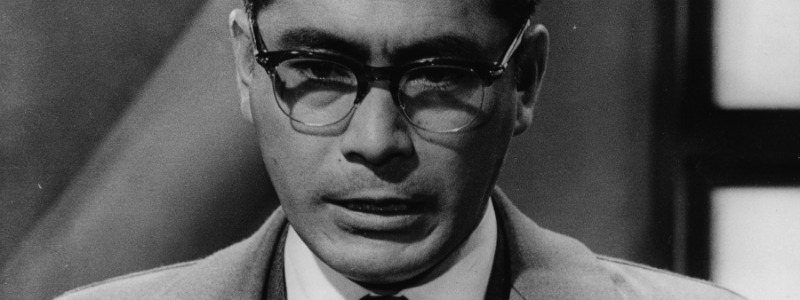

The only one on this list I haven’t seen is Life of Oharu. While I’m a bit partial to Shimura among the Kurosawa mainstays (Ikiru gets me every time), I think Mifune had a certain immovable commanding presence with which he carried every scene. I think one of his all time best roles, and one that is far too often overlooked, was in I LIVE IN FEAR (1955). Another one of those Kurosawa films, like Bad Sleep Well and Quiet Duel, that get overlooked by those who only skim the surface of Kurosawa’s filmography (granted, I’ve never been very big on Quiet Duel but I think Bad Sleep Well is quite a powerful film).
I’m really glad you included “Hell in the Pacific”, I always thought that was a very compelling film. Though Mifune is a better actor than Marvin, they compliment each other so well, and they are almost the perfect mirrored image of one another. Great post!
Interesting list, personally my favorite is High and Low.
This comment comes over 2 years late, but you have made a nice list. While my favorite (like many others) is Yojimbo, I have to say I have not seen The Bad Sleep Well. I am a bit partial to The Hidden Fortress, as well. Toshiro Mifune is absolutely excellent in his films.
good list. 1st pick was a suprise, looking forward to mifunes performance in a film yet seen…but only after finishing up with shintaro katsu (zatoichi, hentai yakuza etc.) =P CHEERS